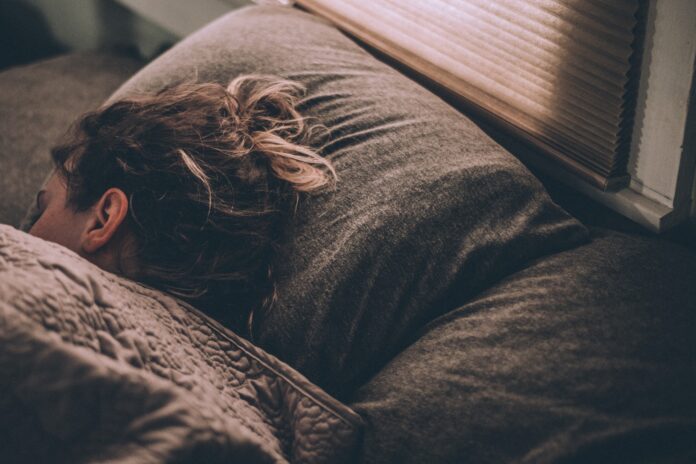
Calculator reveals the bacteria you’re ‘sleeping’ with – plus, the bedtime habits to ditch for better sleep hygiene 
Have you ever eaten pizza in bed? Cosied up to your pet under the duvet, even after a muddy walk? Or, do you leave your wet towels on the bed in a frenzy to get ready for work in the morning? Don’t worry, we’re all guilty of something like this…
MattressNextDay want to know your bedtime habits (no matter how gross) to reveal how you can improve your sleep hygiene and how much your habits compare to others worldwide.
To use the tool, simply select your age range and location from the drop-down menu and then answer the ten questions about your bedtime habits, each are multiple choice questions.
Once you’re done, the tool will share tips on what you can do to make your mattress and bed last as long as possible, which might include changing some of these habits (sorry!).
Four habits to introduce to your bedtime routine to improve sleep hygiene
1. Always air your bed for 30 minutes when you wake and change your bedding weekly
You should air your bed every morning, without fail. As mentioned, dust mites and bacteria have a fondness for your mattress but cool air and light are the opposite of what they need. So, once you get out of bed, peel back the duvet and air the bedding for 30 minutes rather than making it straight away.
If you can leave it to air for longer, great, but 30 minutes should do the trick. Just leave it unmade while you get ready for the day, and once aired, you can then make the bed.
2. Never eat or drink in your bed and avoid placing anything wet on your mattress as it can lead to unwanted critters
Eating and drinking in bed can attract unwelcome attention in your bed, namely, from flies, ants, bed critters and even cockroaches. Considering we discovered that Pseudomonas aeruginosa can live on your socks, which is commonly found on cockroaches and in their faecal droppings, you should take notice if you eat in bed (and wear your socks to bed).
Likewise, eating while lying down can impact your sleep as it can leave you at increased risk of acid reflux, keeping you up throughout the night. Ideally, eat around three hours before bed and always place drinks on your bedside table to avoid any spillages on your mattress.
3. And change into loose-fitting underwear before bed to avoid thrush and other infections
Do you sleep in tight-fitted underwear or pyjamas when attempting to sleep? That could lead to infections, irritations and discomfort, affecting your ability to get a good sleep.
If the material of your underwear is too tight, especially if its material is synthetic, bacteria has the opportunity to thrive, potentially resulting in infections like thrush, which impact your ability to get to sleep comfortably. Instead, opt for loose-fitting underwear when you sleep.
4. Shower before bed if you tend to sweat a lot at night to protect bacteria from growing
Showering at night makes sure you are clean when going to bed – essential if you tend to sweat a lot during the night. Sweat can build up and lead to moisture in the bed which can help that bacteria grow, especially if you don’t air out your bed.
Ideally, shower just before bed as the change in temperature from a hot shower to a cool room can also lower your body temperature. Your body naturally lowers in temperature when you sleep, so this drop should help you reach a deep sleep quicker.
Credit MattressNextDay calculator: https://www.mattressnextday.co.uk/mattresses/what-do-your-bedtime-habits-say-about-you
Help keep news FREE for our readers
Supporting your local community newspaper/online news outlet is crucial now more than ever. If you believe in independent journalism, then consider making a valuable contribution by making a one-time or monthly donation. We operate in rural areas where providing unbiased news can be challenging. Read More About Supporting The West Wales Chronicle























